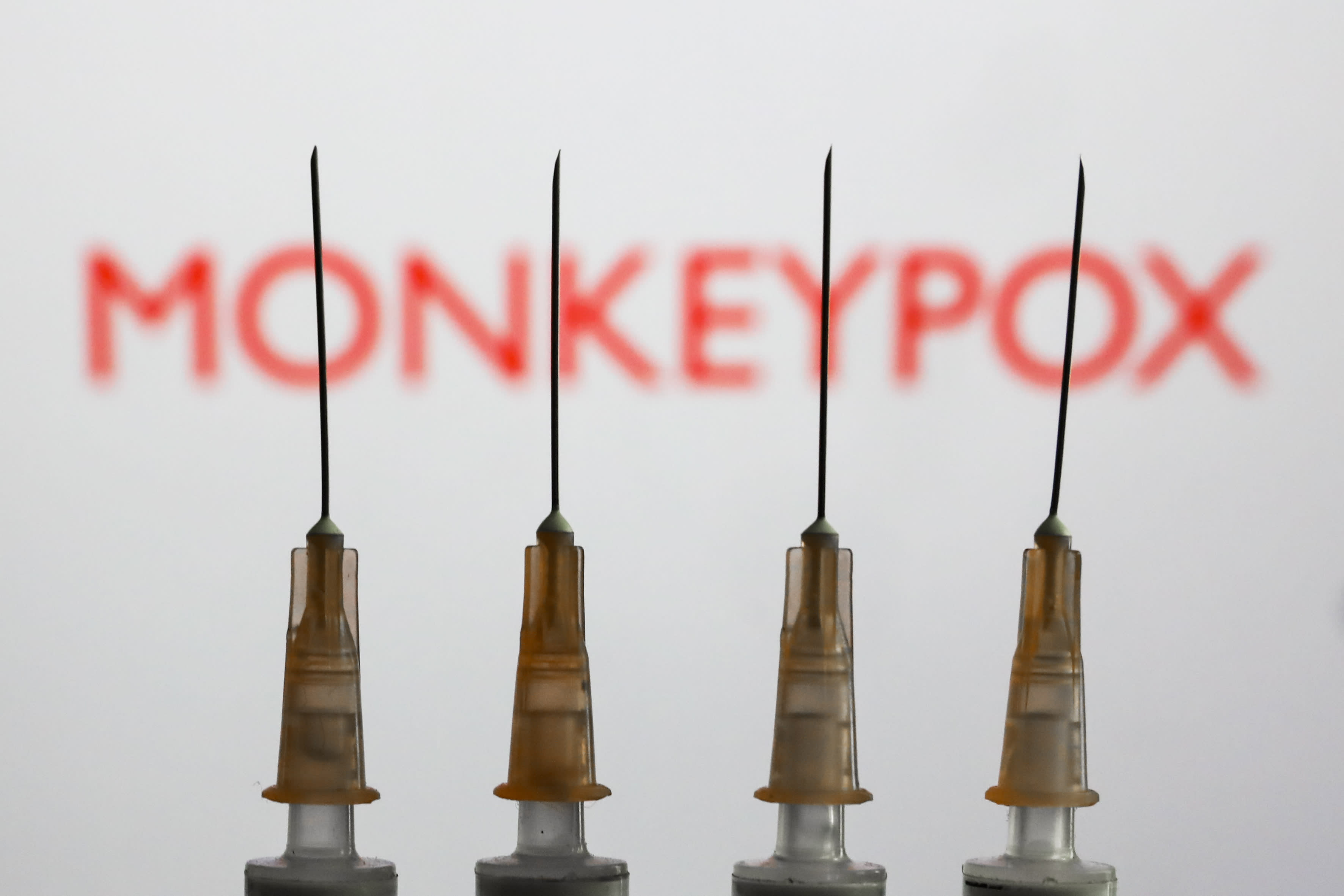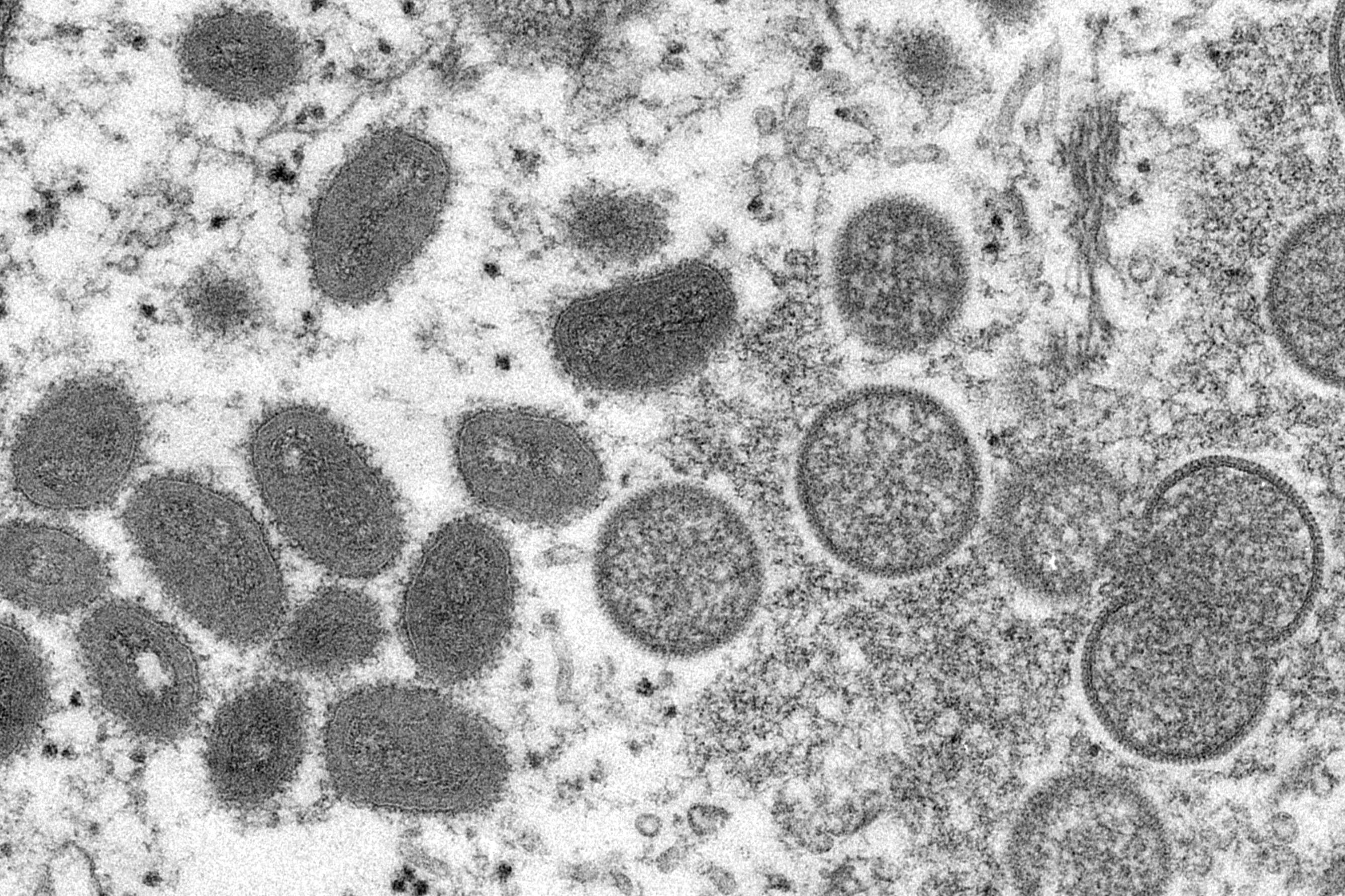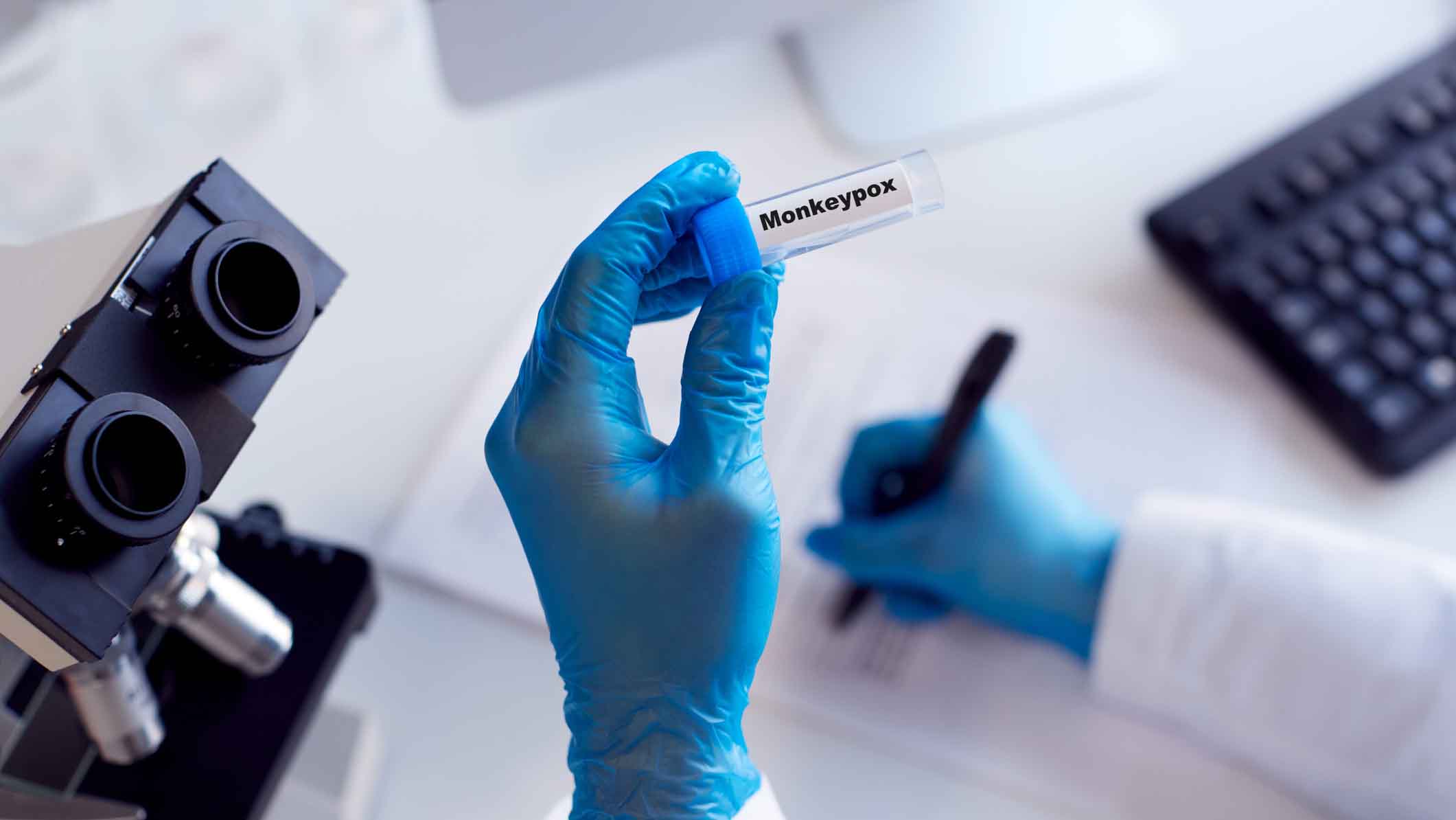Monkeypox cases across the country continuing to rise, with more than 84 confirmed cases across 18 as of June 15, according to the Centers for Disease Control and Prevention.
In Chicago alone, 42 cases have been confirmed, Chicago Public Health Commission Dr. Alllison Arwady said earlier this week. And the Lake County Health Department on Thursday announced that it saw its first case of probable monkeypox.
Overall, Illinois has reported 46 cases of the virus, the CDC reports, currently the third highest number of cases across the country. The state follows New York, with 72 confirmed cases, and California, with 80 confirmed cases.
As the U.S. prepares to deploy nearly 300,000 monkeypox vaccine doses in an effort to stamp out the growing outbreak of the virus, the Chicago Department of Public Health says vaccine events have already begun to take place.
Feeling out of the loop? We'll catch you up on the Chicago news you need to know. Sign up for the weekly Chicago Catch-Up newsletter here.
"In Chicago, we have been ordering and receiving vaccine doses we deliver to clinical settings where identified contacts are referred for post-exposure prophylaxis," a statement Wednesday from the CDPH read.
"Initial vaccine events have been in bathhouses and other settings identified as potential exposure settings during case investigation," the statement continued.
"We will continue to make vaccine available to communities most at risk and where transmission has been highest, as more vaccine continues to be available in coming weeks and months."
CDPH says their strategy is "to vaccinate individuals with confirmed monkeypox virus exposures and those at high-risk of having been exposed (to date: men who have sex with men who have recently had multiple sex partners in a venue where there was known to be monkeypox or in an area where MPV is spreading)."
There have been no reported deaths in the U.S. from the virus, and most people recover from monkeypox in two to four weeks.
What to Know About the Monkeypox Vaccine
The Centers for Disease Control and Prevention is recommending that people who have had confirmed or presumed monkeypox exposures get vaccinated against the virus. Vaccination should occur within two weeks of exposure to the virus, but the sooner the better, according to the CDC.
CNBC reports that the U.S. is immediately releasing 56,000 doses of the Jynneos vaccine from the strategic national stockpile, which will be followed by 240,000 doses in the coming weeks.
A total of 1.6 million doses of Jynneos will be available in the fall, according to the Health and Human Services Department.
Jynneos is a two-dose vaccine approved by the Food and Drug Administration for adults ages 18 and older who are at high risk of exposure to smallpox or monkeypox. HHS is prioritizing the allocation of Jynneos doses to communities with the highest number of monkeypox cases because supply is still limited.
What is Monkeypox?
Monkeypox is a rare, but potentially serious viral illness, which often begins with flu-like symptoms and swelling of the lymph nodes, and progresses to a rash on the face and body, health experts said. It was first observed in Africa in 1970, and is usually found in western and central portions of the continent.
The virus comes from the same family as smallpox.
"It does not come from monkeys. That's just what it was initially detected in and it's a virus that is not related to the COVID virus," Chicago Department of Public Health Commissioner Dr. Allison Arwady said. "It's a completely different family. One of the reasons why there's attention to it is it's in the same family that the smallpox virus. We don't have smallpox anymore. We eradicated but it's in that family."
How Does Monkeypox Spread?
CDPH said person-to-person transmission is possible through "close physical contact with monkeypox sores, items that have been contaminated with fluids or sores (clothing, bedding, etc.), or through respiratory droplets following prolonged face-to-face contact."
“It’s not just your casual handshake,” Dr. Irfan Hafiz, an infectious disease specialist with Northwestern Medicine’s McHenry and Huntley Hospitals said. “(Contact must be) longer, more pronounced. It is not technically a sexually transmitted disease, but it involves close contact.”
“It takes prolonged (contact), not minutes,” NBC News Medical Contributor Dr. Kavita Patel added. “(It can also involve) body fluids or lesions.”
What Symptoms Should You Watch For?
Virus symptoms range from fever, aches and rashes all over the body.
"Suspected cases may present with early flu-like symptoms and progress to lesions that may begin on one site on the body and spread to other parts," CDPH stated.
Hafiz said the virus causes symptoms that are similar to several maladies, including chickenpox or smallpox.
“It can, to the layperson, look like chickenpox or warts,” he said. “But these (sores) tend to be in exposed areas.”
Health experts also said the illness can be confused with a sexually transmitted infection like syphilis or herpes, or with varicella zoster virus.
Federal health officials are urging doctors in the U.S. to "consider a diagnosis of monkeypox in people who present with a consistent rash, especially if they meet any of the following criteria:
- Had contact with someone who had a rash that looks like monkeypox or someone who was diagnosed with confirmed or probable monkeypox
- Had skin-to-skin-contact with someone in a social network experiencing monkeypox activity; this includes men who have sex with men who meet partners through an online website, digital application (app), or social event (e.g., a bar or party)
- Traveled outside the US to a country with confirmed cases of monkeypox or where monkeypox activity has been ongoing
- Had contact with a dead or live wild animal or exotic pet that exists only in Africa or used a product derived from such animals (e.g., game meat, creams, lotions, powders, etc.)
Infections typically last between two and four weeks, CDPH said.
Health officials said anyone with a "new or unexplained rash, sores, or symptoms, or have a confirmed exposure" should visit their healthcare provider and "avoid sex or being intimate with anyone until they have been seen."




